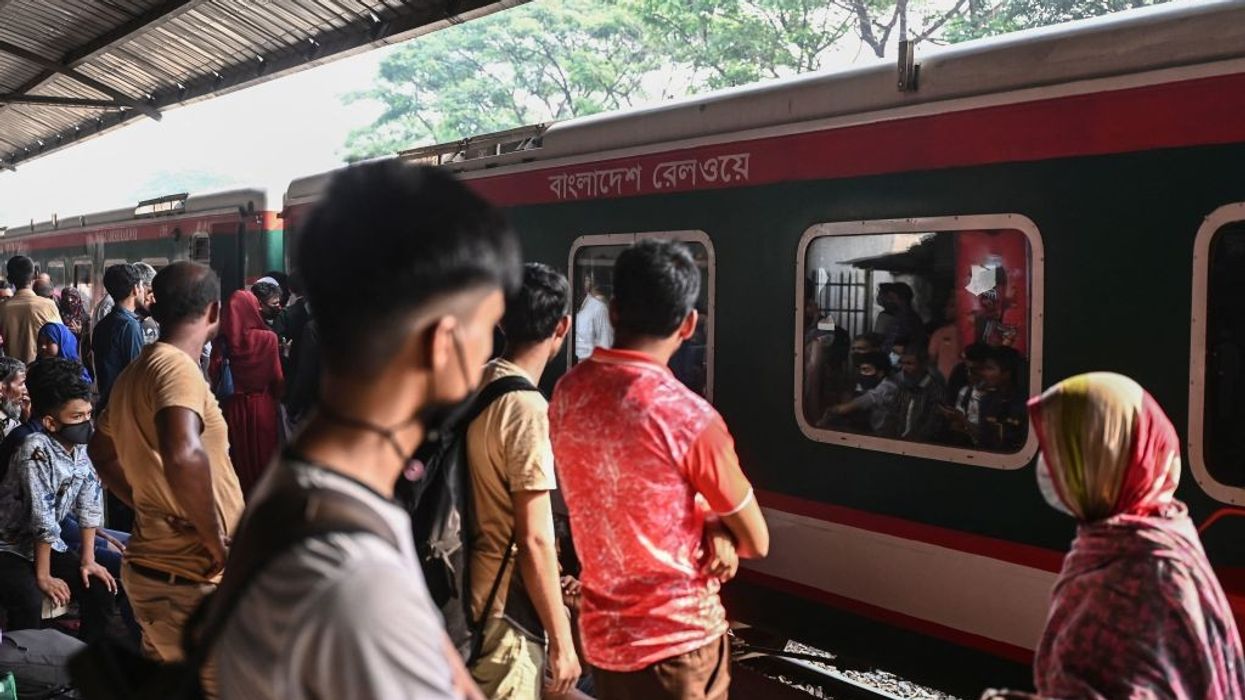China is eyeing high-speed rail network projects in Bangladesh following Bangladesh Railway (BR) feasibility study for constructing the railway network between Dhaka and Chattogram.
In a recent development, China has proposed carrying out the project under the government-to-government-Public Private Partnership (G2G-PPP) framework, reported The Daily Star. Moreover, Dhaka has also selected China Railway Group Ltd (CREC), a state-run company, for implementing the project, which will cost more than three times the expenditure for Padma Bridge (Tk 30,193 crore).
Li Jiming, the Chinese ambassador to Bangladesh, in April wrote to Railways Minister Nurul Islam Sujan for signing a memorandum of understanding between CREC and BR "as soon as possible".
Apart from CREC, two other Chinese companies -- China Railway Construction Corporation and China Civil Engineering Construction Corporation -- expressed interest in forming a joint venture to construct, operate and manage funds for the high-speed rail project under a PPP model.
Moreover, the ambassador expected that an MoU would be inked between the two governments in the "near future" to embark on the high-speed rail project under the G2G-PPP framework, reported The Daily Star.
Under the G2G-PPP arrangement, Bangladesh may request other governments to provide financial support and select state-owned or private entities to act as the investors.
Prime Minister Sheikh Hasina in October 2014 had proposed constructing a high-speed rail network between Dhaka and Chattogram. However, the project was apparently put on the back burner considering the huge amount of money -- Tk 93,35,0.93 crore -- required for its implementation.
No project under the G2G-PPP arrangement has yet been implemented in Bangladesh. Discussions with several countries, including Japan and South Korea, have been going on to implement some projects under this model.
The Chinese proposal came at a time when prominent transport experts questioned the viability of such a huge-investment project. Some of them said BR lacks the capacity to complete this "highly ambitious" scheme.
Even, the railways' minister himself told The Daily Star last year that the government would "go slow" with the project due to the massive cost involved.
In Bangladesh, once the high-speed rail project is implemented, the journey on the 224.64km route between Dhaka and Chattogram via Narayanganj-Cumilla-Feni will take 55 minutes if uninterrupted, and 73 minutes with stopovers. The travel time is currently more than six hours.
Dhaka-Chattogram highway is considered the lifeline of the economy as it carries more than 80 per cent of the external trade. (ANI)
China eyeing high-speed rail network in Bangladesh
Prime Minister Sheikh Hasina in October 2014 had proposed constructing a high-speed rail network between Dhaka and Chattogram.




